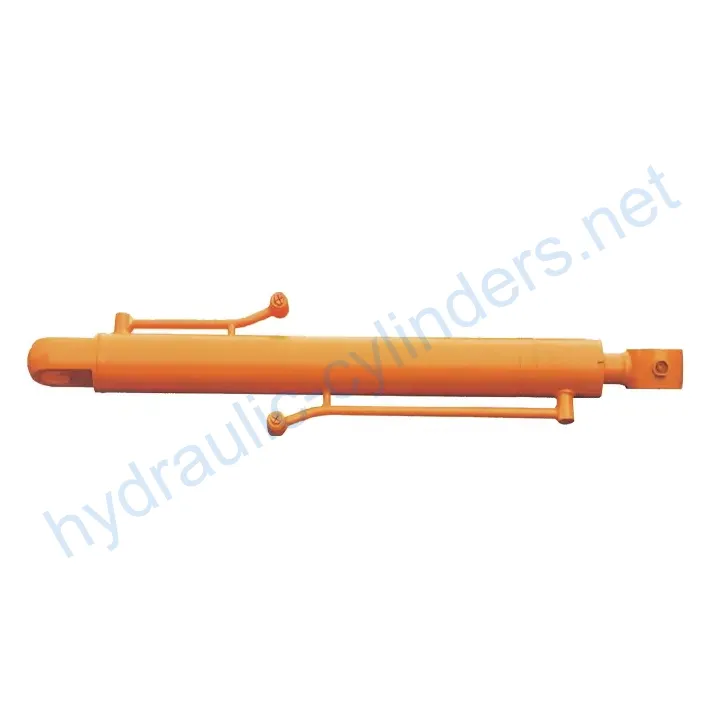Boom Cylinder For John Deere E210LC
Jako jeden z producentów, dostawców i eksporterów produktów mechanicznych, oferujemy cylindry hydrauliczne i wiele innych produktów.
Prosimy o kontakt w celu uzyskania szczegółowych informacji.
Poczta:sales@hydraulic-cylinders.net
Producent dostawca eksporter siłowników hydraulicznych.
Boom Cylinder For John Deere E210LC
Product Overview
The Boom Cylinder for John Deere E210LC is an essential hydraulic component designed to control the movement of the boom in excavators. This hydraulic cylinder plays a crucial role in the operation of heavy machinery, enabling the smooth lifting, lowering, and tilting of the boom. In essence, it allows operators to efficiently manage material handling tasks, whether it be for construction, demolition, or landscaping projects.
As a hydraulic cylinder specifically designed for use in heavy equipment, the boom cylinder is responsible for converting hydraulic pressure into mechanical force. This enables the boom to perform a variety of functions, such as digging, lifting, and moving materials with precision and ease. The incorporation of advanced engineering in its design ensures durability and reliability, making it a vital component for maximizing the performance of machinery.
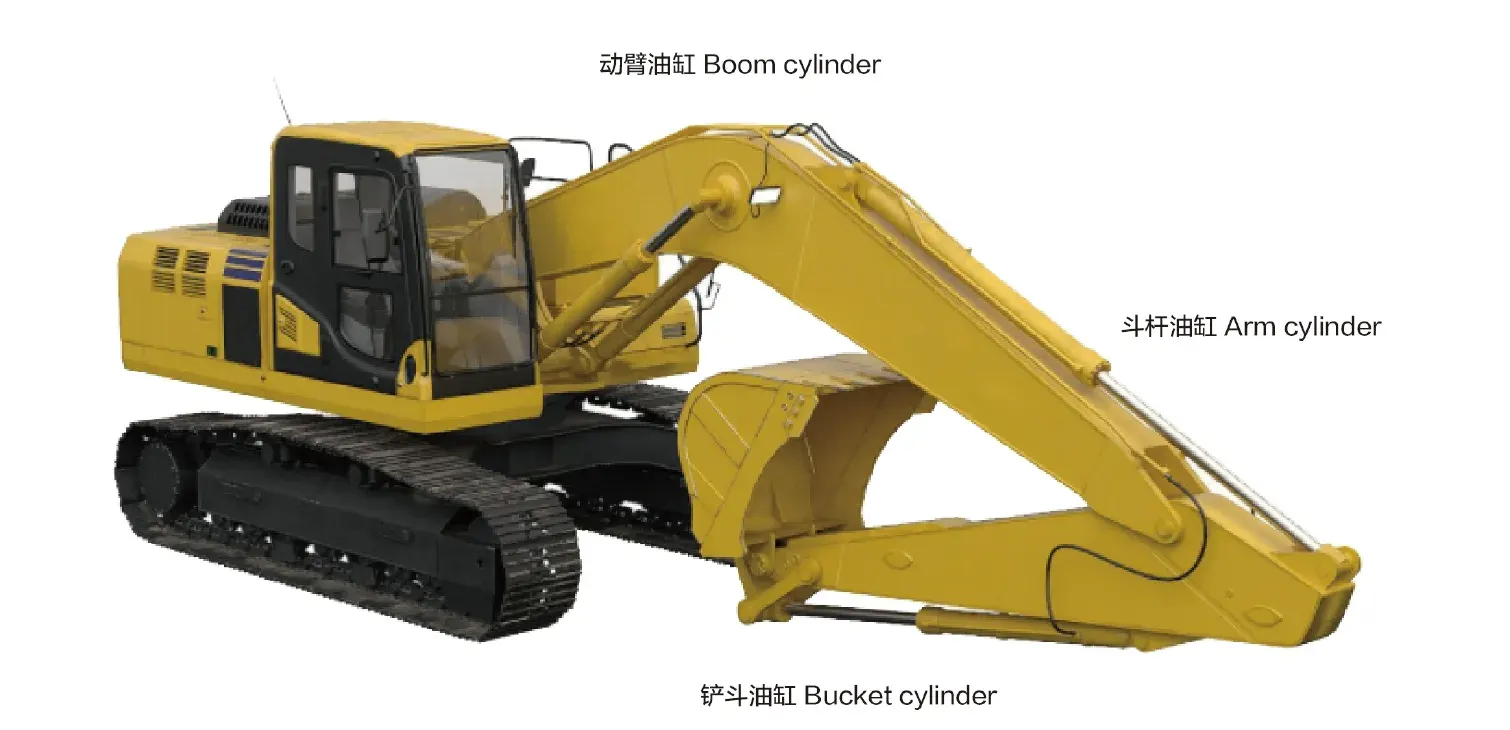
Features of the Boom Cylinder
-
High Strength and Durability
Constructed from high-strength steel or aluminum, the boom cylinder can withstand high pressure and heavy loads. Its design also considers wear resistance and corrosion protection, thereby prolonging its lifespan even in harsh working conditions.
-
Efficient Hydraulic Operation
The cylinder utilizes hydraulic oil pressure for smooth extend and retract actions, allowing for quick responsiveness to operator commands. It provides strong push and pull forces, making it ideal for handling heavy and intricate tasks.
-
Variety of Types
Depending on the operational needs, users can choose between single-acting (hydraulic force in one direction) or double-acting (hydraulic force in both directions) cylinders. Some models are telescopic, allowing for greater extension without increasing external dimensions, which is perfect for applications with space constraints.
Our production capabilities ensure that we can manufacture this product to perfectly replace existing hydraulic cylinders.
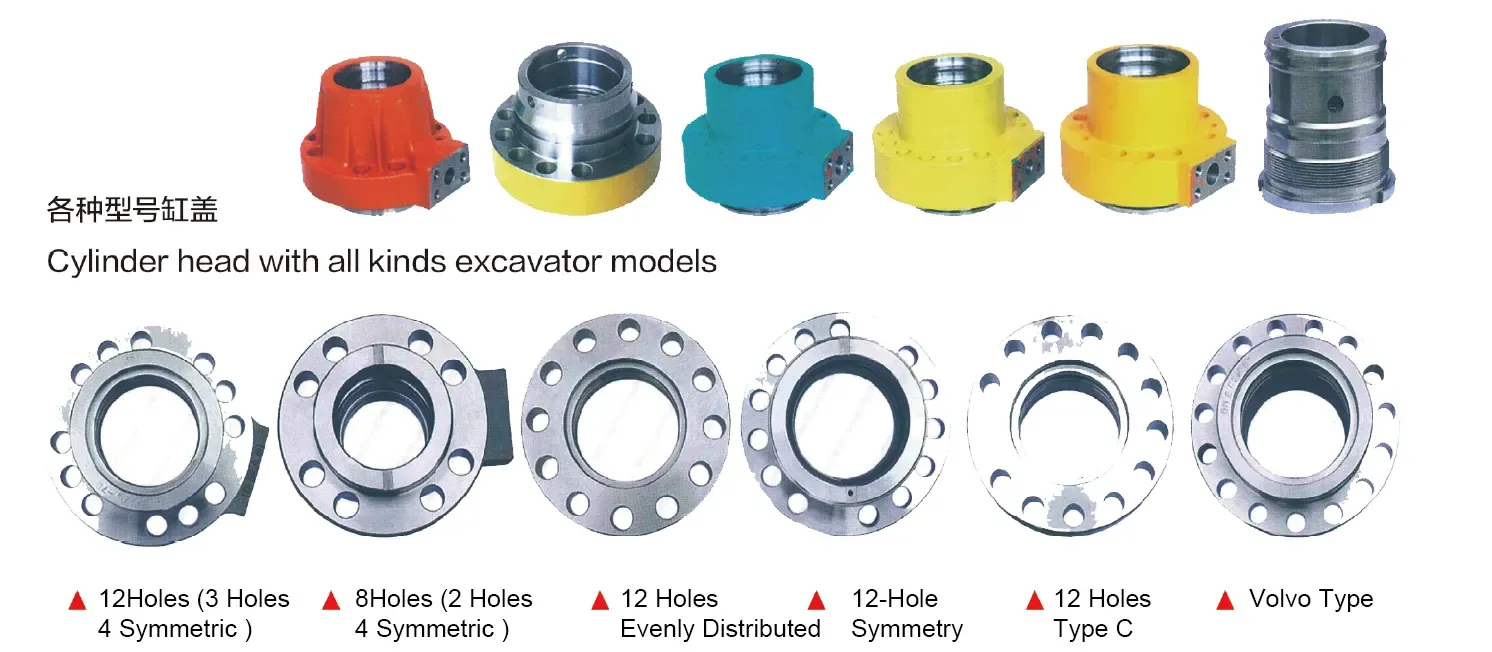
Applications of the Boom Cylinder
-
Construction Equipment
In excavators, boom cylinders are crucial for digging, loading, and moving dirt or debris. These cylinders facilitate the boom’s lifting and lowering, allowing operators to perform tasks efficiently. Particularly, in construction sites, the ability to adjust the boom height and angle is vital for safe and effective operation.
-
Agricultural Machinery
In front-end loaders, boom cylinders are essential for scooping, lifting, and transporting soil, hay, and other materials. They provide the necessary force to manage loads effectively, which is critical during planting and harvesting seasons when time is of the essence.
-
Excavators
In excavators, the boom cylinder allows the bucket to penetrate the soil, enabling efficient digging actions. This capability is particularly important in projects requiring excavation of deep trenches or large areas, ensuring productivity and speed in operations.
-
Loaders
In front loaders, boom cylinders assist in lifting and dumping materials effectively. The ability to control the angle and height of the load enhances maneuverability, allowing operators to complete tasks with precision and ease.
Design Considerations and Selection Criteria
-
Load Capacity
The load capacity is a crucial factor in the design of a boom cylinder. It determines how much weight the cylinder can safely lift and support. A properly designed cylinder should have sufficient strength to handle the maximum weight it will encounter during operation. This involves material selection, structural integrity, and thorough testing to ensure safety and reliability.
-
Sealing
Effective sealing is essential to prevent hydraulic fluid leakage. High-quality seals made from materials like polyurethane or nitrile rubber are often employed to ensure durability and resistance to wear. The design should also consider pressure differentials and temperatures that the seals will be exposed to, ensuring longevity and performance under various conditions.
-
Durability
Durability refers to the ability of the boom cylinder to withstand wear and tear over time. This includes resistance to corrosion, abrasion, and fatigue. Manufacturing processes that enhance toughness, such as surface hardening treatments and protective coatings, are important in extending the life of the cylinder and maintaining its performance.
-
Safety
Safety features are paramount in the design of hydraulic cylinders. This includes pressure relief valves to prevent overloading, as well as robust mounting designs to avoid failure during operation. Ensuring that the boom cylinder adheres to industry safety standards is critical for protecting operators and equipment.
-
Maintenance
Ease of maintenance is another important consideration. The design should allow for straightforward access to components that require regular servicing, such as seals and lubrication points. Implementing features that facilitate quick inspection and repairs will minimize downtime and enhance operational efficiency.
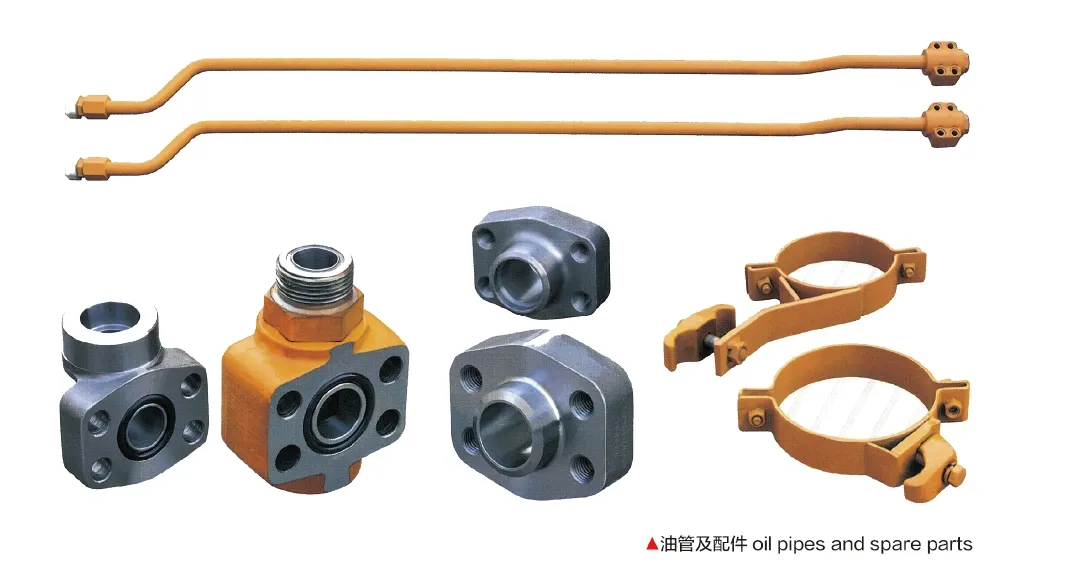
Sealing and Lubrication of the Hydraulic Cylinder
The sealing and lubrication system of a boom cylinder is critical for its functionality and longevity. Various sealing components, such as piston seals and rod seals, should be selected based on their ability to withstand hydraulic pressures and prevent fluid leakage. Materials commonly used include polyurethane and nitrile rubber, which offer high resistance to wear and chemical degradation.
Furthermore, the cylinder’s body and threaded ends should undergo precise machining to improve surface finish, enhancing wear resistance and ensuring a tight seal. Regular lubrication with an appropriate hydraulic oil is necessary to maintain smooth operation and reduce friction between moving parts, thereby extending the service life of the cylinder.
Regular Inspection and Preventive Maintenance Measures
-
Regular Inspections
Conducting regular inspections of the boom cylinder is vital to identify any signs of wear or damage. Operators should check for hydraulic fluid leaks, examine seals for integrity, and look for any deformation of the cylinder body. Early detection of issues can prevent major failures and costly repairs.
-
Appropriate Lubrication
Applying the right amount of hydraulic oil is essential for optimal performance. Over-lubrication or under-lubrication can lead to operational issues. It’s important to follow manufacturer recommendations for lubrication frequency and quantity to maintain the cylinder’s functionality.
-
Seal Replacement and Calibration Checks
Replacing worn seals is crucial in maintaining hydraulic efficiency. Operators should be trained to recognize when seals are failing and to replace them promptly. Additionally, regular calibration checks ensure that the hydraulic system operates within specified parameters, enhancing safety and performance.
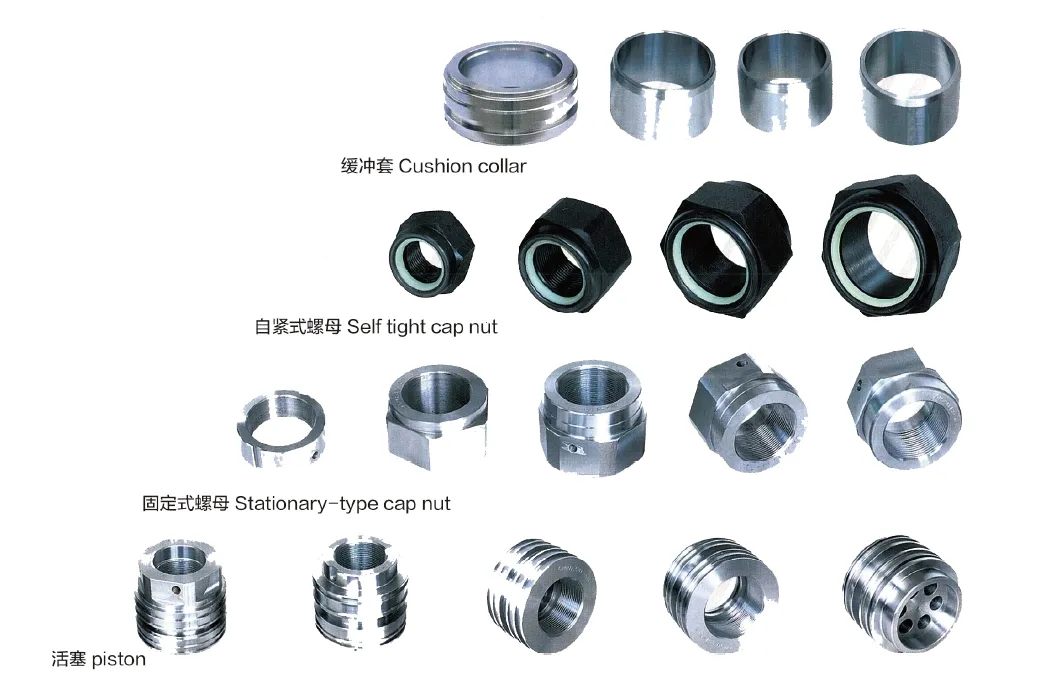
Safety Considerations and Environmental Factors
When utilizing hydraulic components like the boom cylinder, implementing safety measures is of utmost importance. Operators should be trained on safe operating procedures, including load limits, emergency shutdowns, and proper positioning of equipment to avoid accidents. Additionally, environmental factors such as temperature fluctuations and exposure to corrosive substances should be considered, as they can impact the cylinder’s performance and longevity.
Fault Diagnosis and Common Issues
-
Leakage
Hydraulic fluid leaks are one of the most common issues encountered. This can result from worn seals, damaged hoses, or improper installation. Identifying the source of the leak promptly is crucial to prevent loss of hydraulic pressure and ensure safe operation.
-
Slow Response Time
If the boom cylinder exhibits a slow response time, it may indicate low hydraulic fluid levels or internal wear. Operators should check fluid levels and inspect the cylinder for signs of internal damage. Regular maintenance and fluid checks can help mitigate this issue.
-
Uneven Movement
Uneven movement of the boom can arise from unequal pressure distribution in the hydraulic system. This may be caused by blockages in hoses or valves. Regular inspections and cleaning of the hydraulic system can help maintain even functionality.
Troubleshooting Tips and Preventive Measures
To effectively troubleshoot issues with the boom cylinder, operators should maintain a detailed log of performance and any irregularities. Regular maintenance, including checks for leaks and ensuring proper lubrication, will minimize potential problems. Implementing a preventive maintenance schedule can significantly reduce the likelihood of hydraulic failures, ultimately enhancing the safety and productivity of operations.
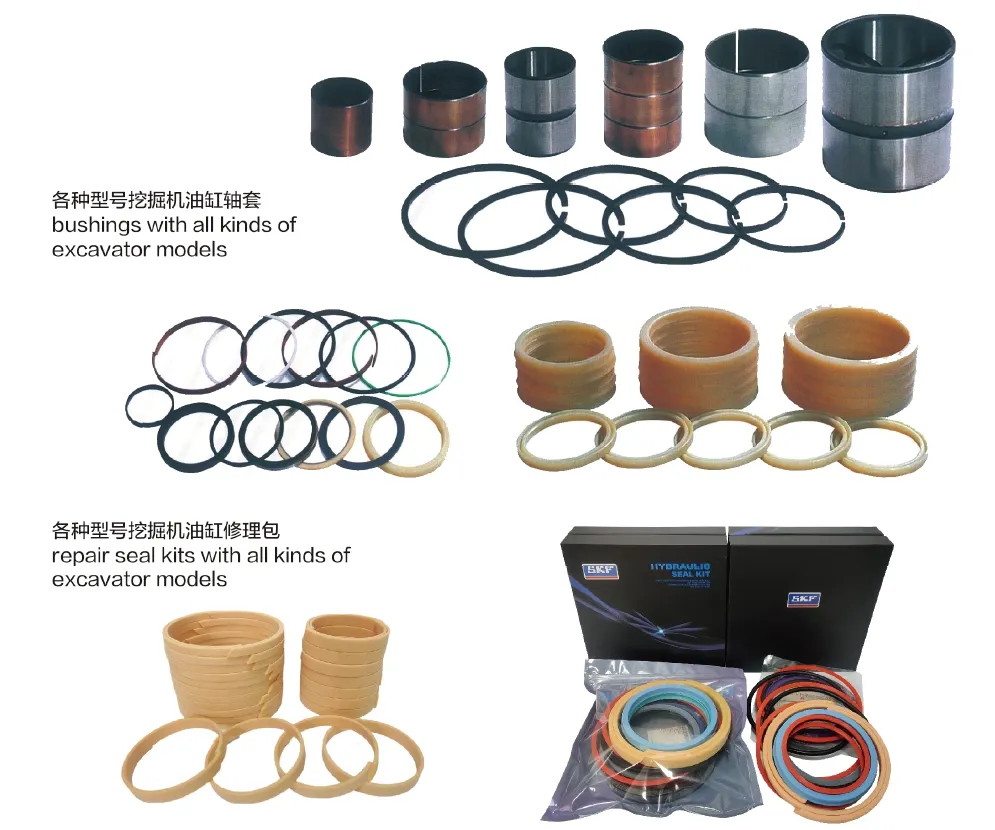
About Our Company
We are a manufacturer specializing in hydraulic cylinder replacements, offering a wide range of products that make us one of the leading manufacturers and wholesale distributors in the domestic and international markets. Our commitment to excellence is backed by a refined production management strategy utilizing high-end manufacturing equipment and a specialized testing system. We continuously enhance our manufacturing platform, ensuring high efficiency, accuracy, and quality to meet diverse customer needs.
Our company prides itself on professionalism, holding international certifications that guarantee our products’ quality. We offer customized services to cater to specific client requirements and maintain state-of-the-art production equipment to ensure top-notch products. Furthermore, our dedicated after-sales service guarantees customer support, providing peace of mind and addressing any concerns that may arise.
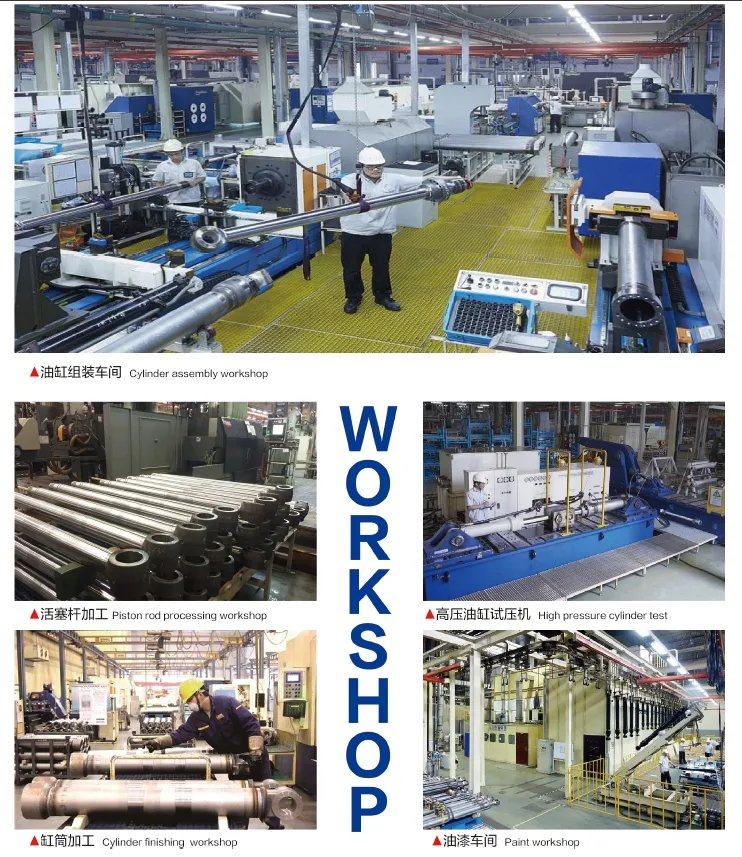
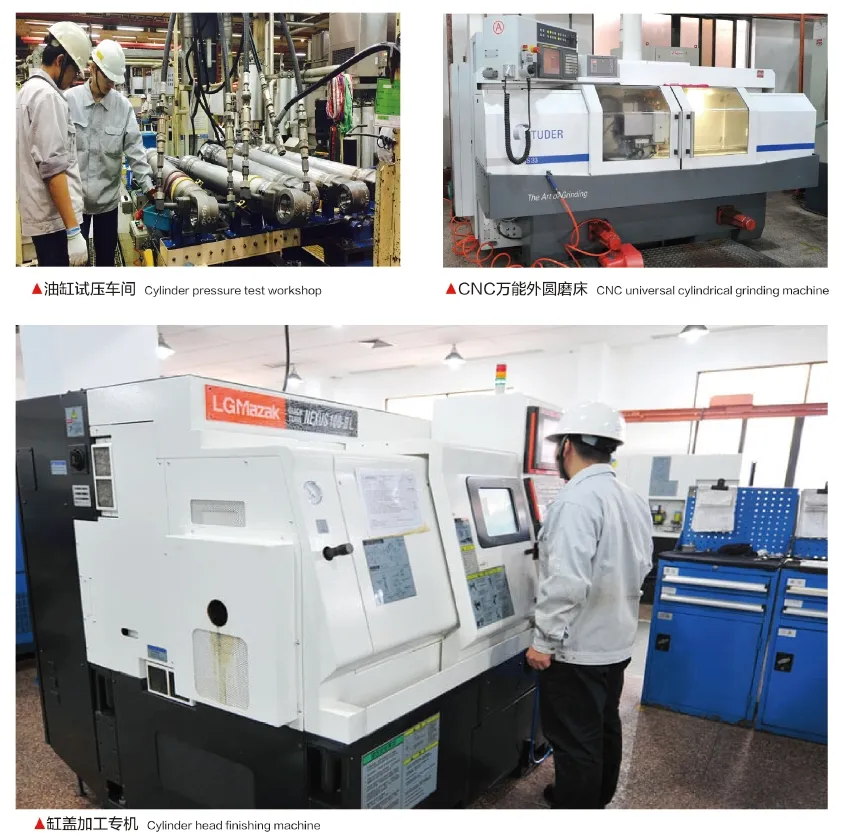
Author: lyl
Zapraszamy na wycieczkę po naszej fabryce VR:
Wybierz się na wycieczkę po naszej fabryce VR z następującymi elementami
Siłownik hydrauliczny Zastosowanie:


